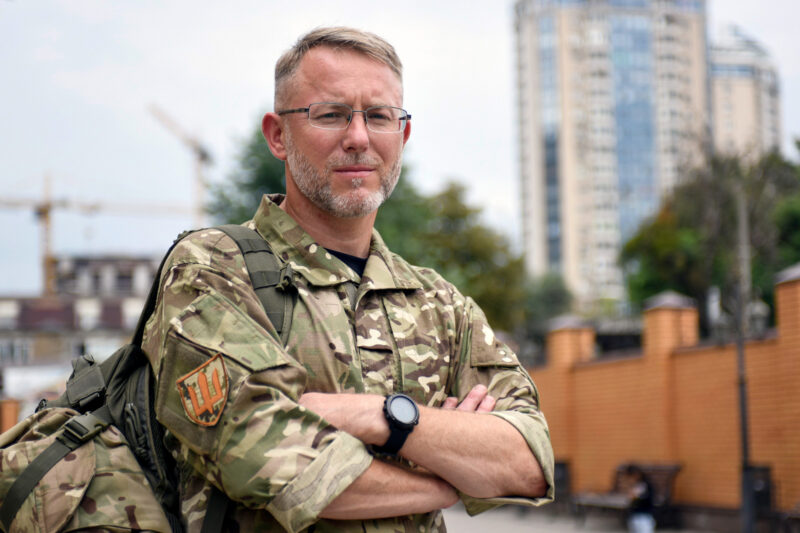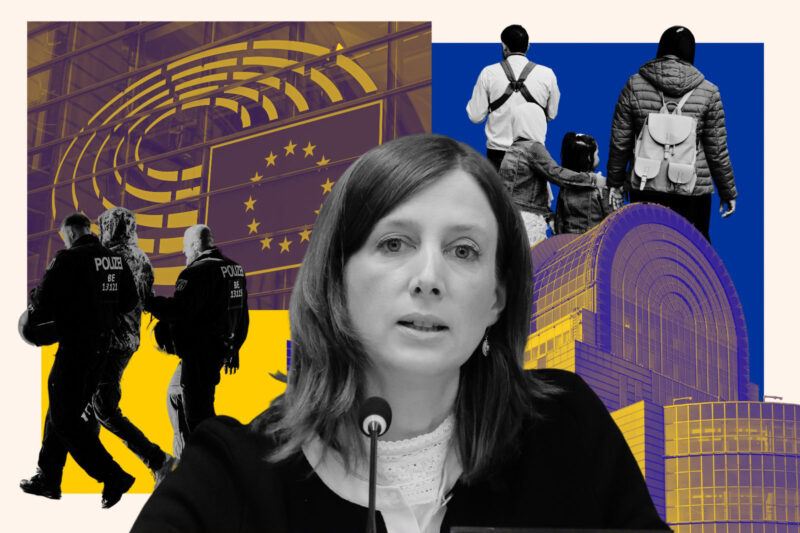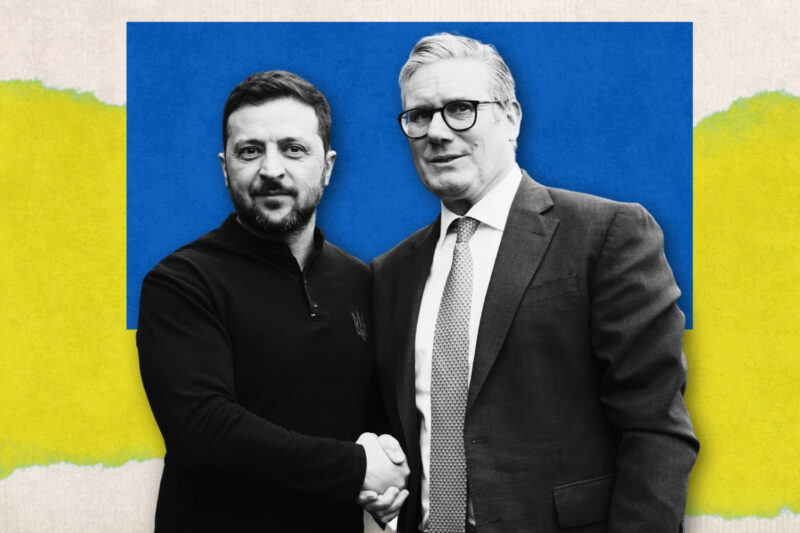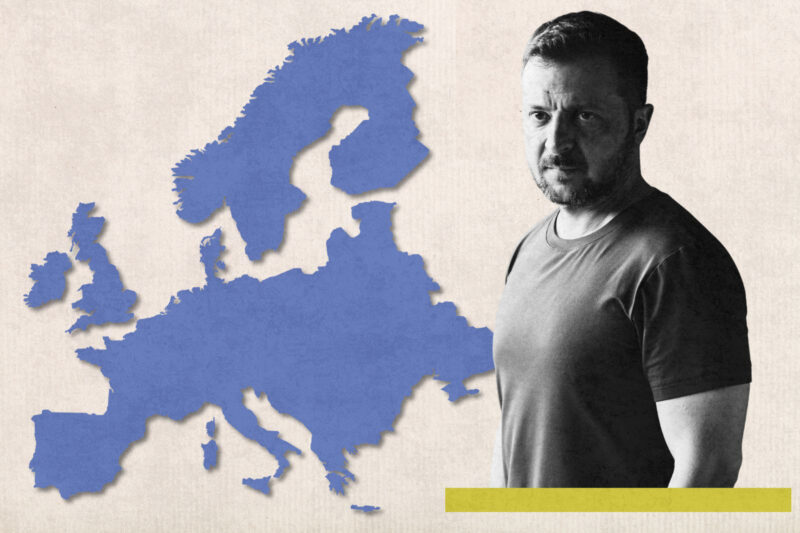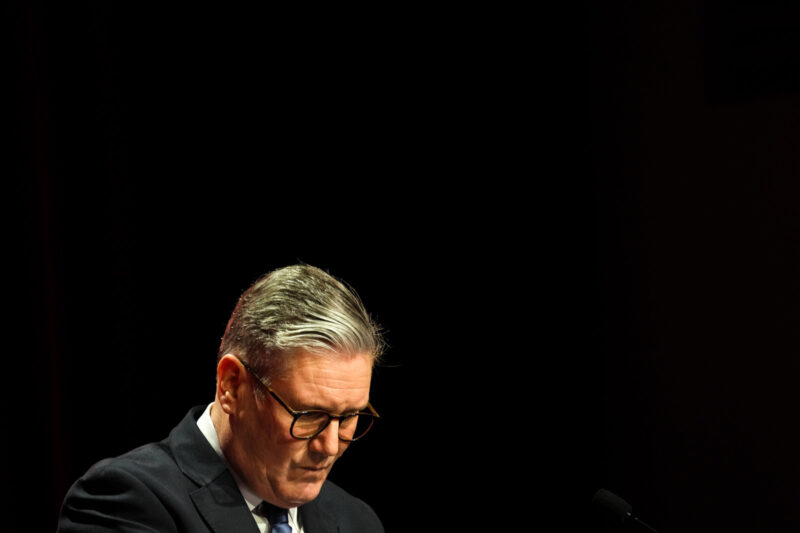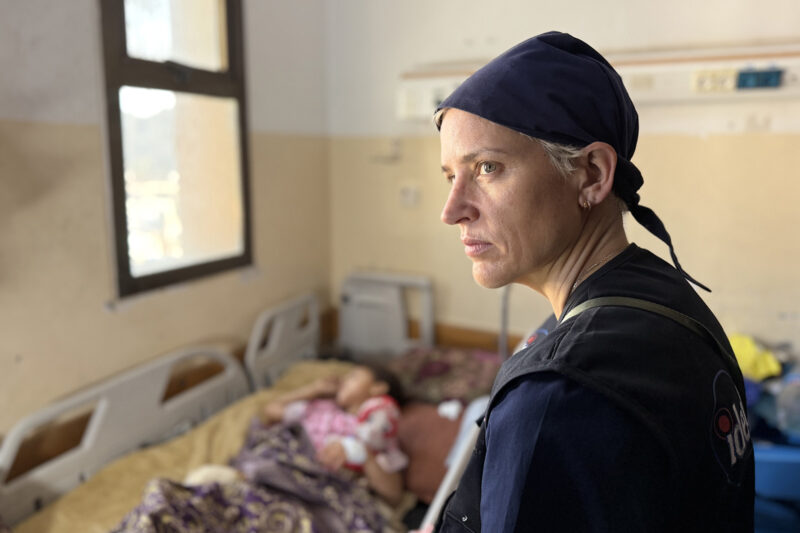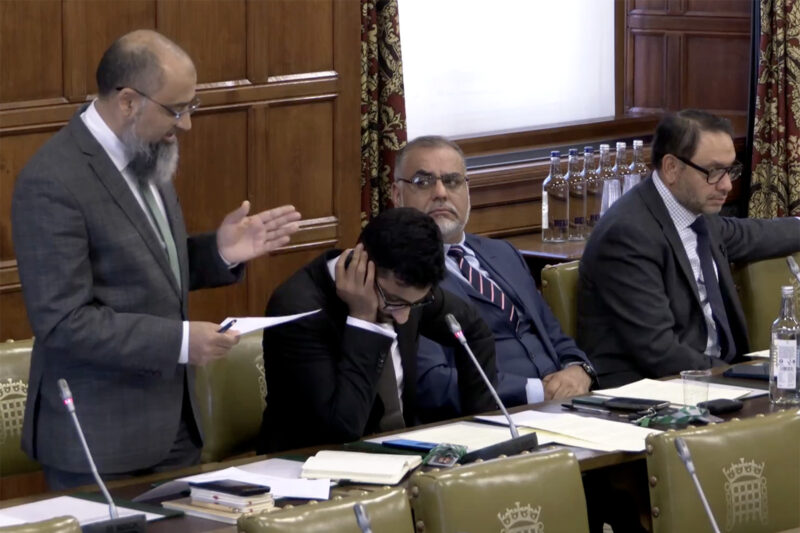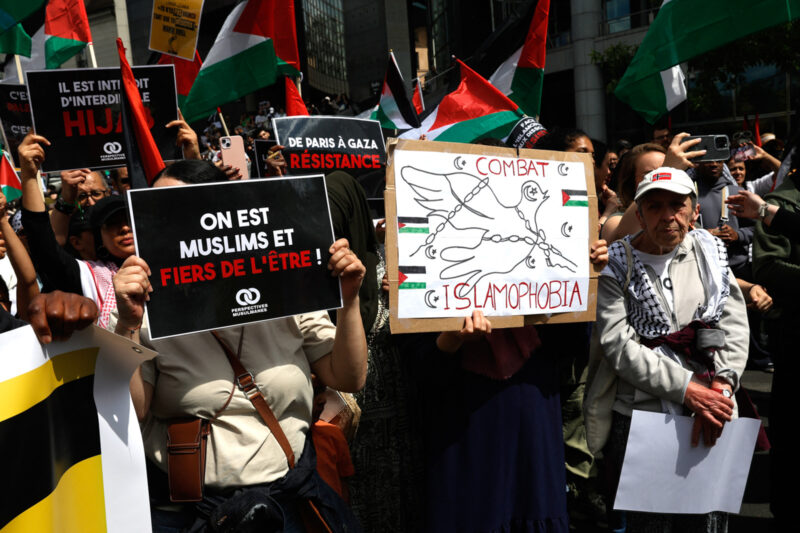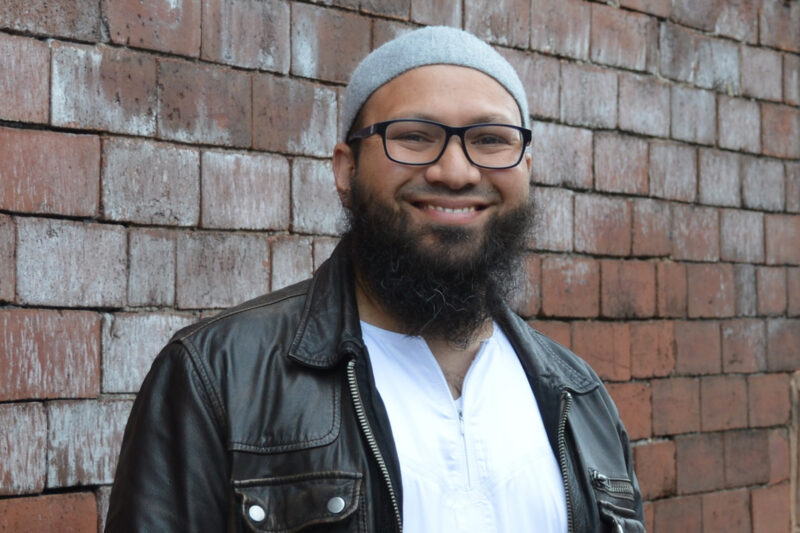What Russia’s treatment of Crimea’s Muslim minority reveals about its plans for the rest of Ukraine
Activists and leaders from the Tatar minority believe any opposition to Russian occupation will be met with the same repression they have suffered
–
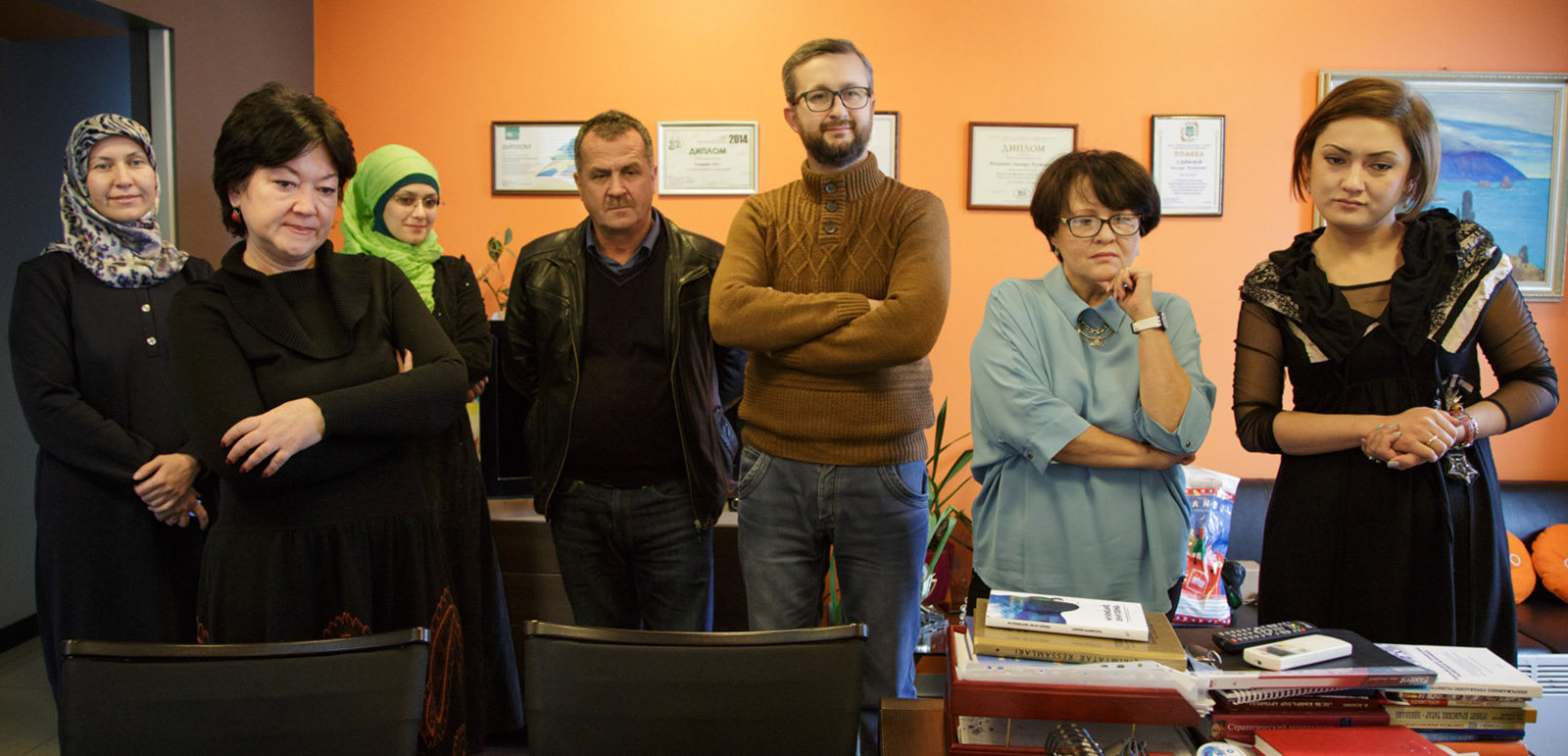
In late November, Leviza Dzhelyalova finally heard from her husband. She had lost all contact with the Crimean Tatar leader Nariman Dzhelyal when Russian authorities removed him from Simferopol pre-trial prison in Crimea on 2 October. After six weeks with no news, a letter arrived in which he explained he is being held 5,000km away in a high security prison in Minusinsk, Siberia.
Until his arrest in 2021, Dzhelyal was the most prominent public figure in Crimea to openly oppose Russia’s occupation of the peninsula, which it unilaterally annexed from Ukraine in 2014. Opposition is not something Moscow tolerates. Since launching its full-scale invasion of Ukraine in February 2022, Russia has gone on to occupy 18% of the country in the east and south. As its invasion continues and a growing number of Ukrainian citizens fill Russian prisons, leaders of the region’s Muslim minority warn that the repression and the war crimes suffered by Russia’s newly occupied territories, including torture and arbitrary detention, follow a rulebook for occuption first played out in Crimea.
“All the human rights violations and war crimes started in Crimea,” said Tamila Tasheva, the Kyiv-based permanent representative of the President of Ukraine in Crimea. “Crimea was occupied first, and Russia developed there all the practices that it carries out now on a greater scale on the newly occupied territories.”
Dzhelyal and his wife are Crimean Tatars, an indigenous Turkic Muslim minority. He spoke openly about this repression to international journalists, diplomats and human rights organisations, including at an international diplomatic forum in Kyiv in 2021. He was arrested in September 2021 for the alleged sabotage of a gas pipeline after returning home from the forum, despite a lack of evidence of any damage to the pipe. After a court process rife with legal violations — including the torture of a fellow defendant — he was transferred in October to start a 17-year sentence. For more than six weeks, all attempts by Dzhelyal’s family and lawyer to find out his location from Russian penal authorities were met with the response “not found here”.
“I can’t even say how hard it is, when you’re in a vacuum for two months with no word at all about your loved one. You stay awake all night thinking: where is he, how is he, why don’t we hear anything?” Dzhelyalova said. “So just to get the smallest news at last, where he is and that he’s alright, is such joy.”
Dzhelyal is now in Krasnoyarskiy Kray prison, one of Russia’s strictest penal institutions. Visits are highly restricted and inmates can receive only one 20kg parcel every six months — not enough for his family to send supplies to replace the pork-based prison food which, as a Muslim, he cannot eat. “He misses meals,” Dzhelyalova said. “I think he’s going hungry.”
Immediately after annexing Crimea in March 2014, Russian authorities issued passports to its 2.4 million Ukrainian citizens, poured money into its infrastructure and encouraged Russian immigration to the peninsula. Around half a million Russian civilians have moved to Crimea since its annexation, according to Ukrainian officials, in addition to large numbers of military personnel. Crimea has become a crucial military base for Russia’s full-scale invasion of Ukraine.
Russian authorities also swiftly set about suppressing dissent. Currently, 190 political prisoners from Crimea, of whom 123 are Tatars, are being held by Russian authorities. At one point the majority in Crimea, the Crimean Tatars were gradually dispossessed under Russian imperial rule until, in 1944, the entire group was deported on Stalin’s orders. They campaigned peacefully against a ban on their return until the Soviet Union collapsed in 1991 and thousands came back. There are now between 250,000 and 300,000 in Crimea.
Crimean Tatars opposed Russian annexation in 2014 but Moscow soon outlawed their representative body — the Mejlis — to which Dzhelyal belonged. Activists, observant Muslims, journalists and anyone demonstrating an independent civic or pro-Ukrainian position began disappearing, or were arrested on charges of extremism, terrorism and sabotage. In an essay written from prison, Dzhelyal described the peninsula’s climate of fear and propaganda beneath a veneer of new roads and schools. “We have actually ended up in a prison,” he wrote, “where the loyal get treats and the disobedient are punished.”
Since 2022 and Russia’s full-scale invasion of Ukraine, the rate of arrests and fines has increased in Crimea. More than 600 people have been prosecuted under a new statute criminalising the act of discrediting the Russian army, the majority for posts on social media or such peaceful actions as listening to Ukrainian songs, according to Tasheva. Many Ukrainians detained on newly-occupied territory are being held in Crimea in a new pre-trial prison that opened in Simferopol in December 2022 on no clear charges and without recourse to the basic legal norms that even Dzhelyal had, like access to a lawyer. The UN human rights monitoring mission in Ukraine reports that 91% of Ukrainian civilian prisoners detained in Russian-controlled prisons are tortured.
Ukraine’s Ministry for Reintegration of the Temporarily Occupied Territories has confirmed that more than 700 Ukrainian civilians from territories occupied after February 2022 are being held by Russia. However, the real number may be far higher as Russia does not release figures and it can take months or even years for families to track down what has happened to their relatives. The Associated Press cited a Russian government document outlining plans to create 31 new prison colonies and detention centres in occupied Ukraine by 2026.
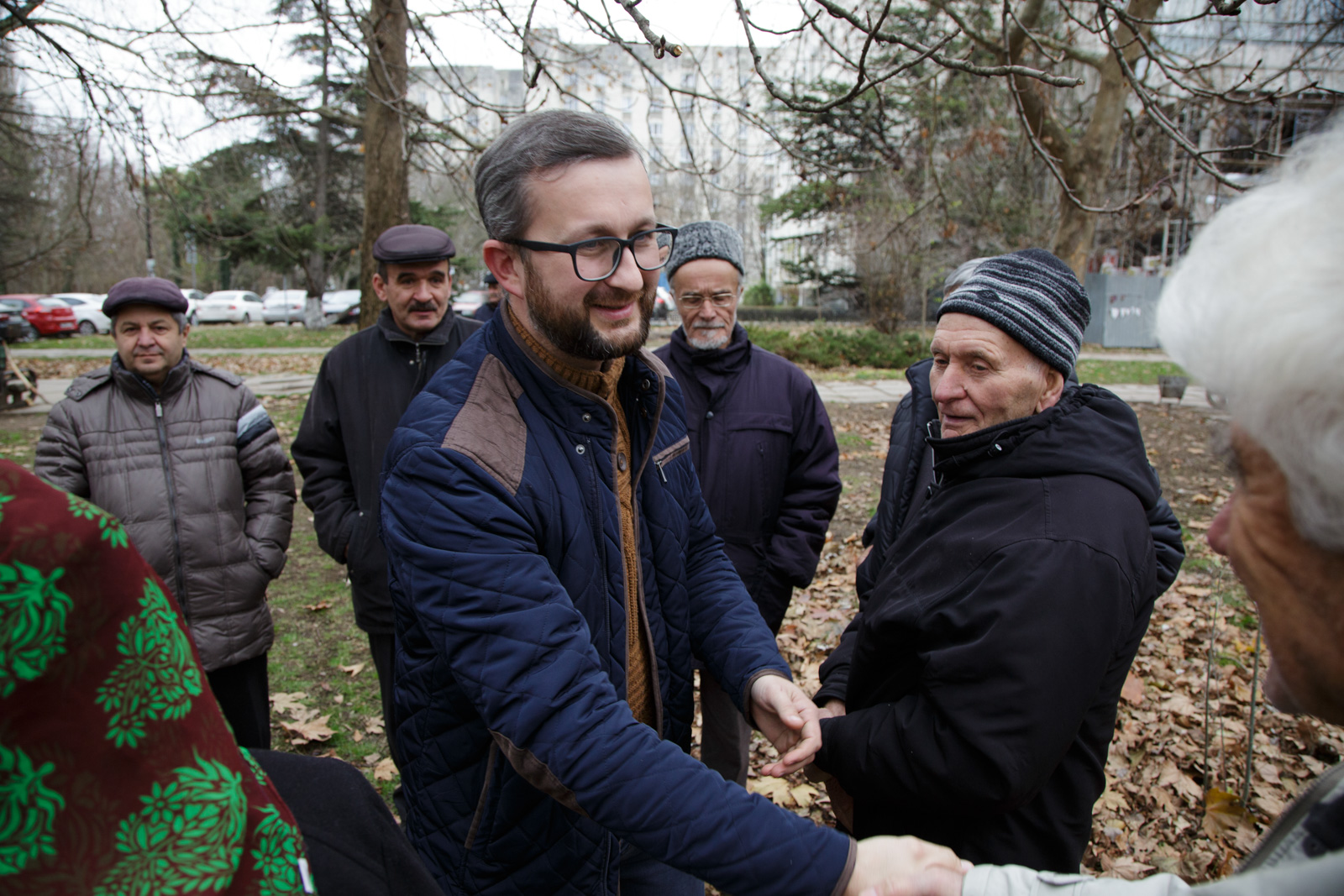
Dzhelyal, 43, was a journalist with Crimean Tatar newspaper Avdet and TV channel ATR before joining the Mejlis. He stayed in Crimea after other Mejlis members were exiled or arrested, attending the court hearings of political detainees, publishing information about legal violations and giving interviews to foreign media and human rights groups. As the most high-profile opposition Crimean Tatar to remain, he was closely scrutinised. His house was searched, he was called in for questioning by the FSB (the Russian security service) and warned not to engage in “extremist” activity. His wife recalls him showing her where the FSB and investigative committee were located so she would know where to look for him if he went missing.
Speaking in 2016, he admitted that his arrest was likely: “I don’t think it’s useful to sit in prison; there are enough people there already, so I try to be careful. But I know that if law enforcement wants to move against us, no amount of caution will help.” Despite the risk, he and his wife never considered leaving their home, having both returned from exile to Crimea as children.
“And now there is all this fear but we are not doing anything illegal, we are just living in our native land,” Dzhelyalova explained. “We were brought up to understand that love for our homeland is the most sacred thing.”
Dzhelyal was a rare and important figure in occupied Crimea, said Tasheva, supporting families of political prisoners, promoting Crimean Tatar language and culture and showing by example that it was possible to retain freedom of conscience. His decision to stay and keep speaking out against the Russian regime was inspiring to those afraid to express their opinions publicly.
“People looked at Nariman and got moral support for their opposition to Russian occupation, and of course Russia saw this. For [Russia] it was important to either break such people, attract them to their side, or arrest and isolate them,” said Refat Chubarov, the head of the Mejlis, now based in Kyiv having been sentenced in absentia to six years for incitement to violence. “Honestly speaking, his arrest and repression was expected by everyone, including himself.”
When news of Dzhelyal’s arrest broke in early September 2021, people in Crimea who had long stopped posting anything on social media that could possibly be construed as critical of annexation broke their silence. Some posted links to news items, others expressed horror and anger. Dzhelyalova said she and her four children are still surrounded by quiet support but the public outburst of protest did not last. The potential cost of even speaking or writing in Ukrainian language, let alone voicing criticism of the Russian regime, is simply too high. The latest fear is that Crimean men will be mobilised to fight for Russia in Ukraine.
Russia’s annexation of Crimea from Ukraine violates international law and has been condemned by the US, the EU and in numerous UN resolutions, but by 2021 it looked like a fait accompli. Western countries imposed sanctions but otherwise took a position of passive non-recognition, citing the example of the Baltic states that were invaded and remained de facto part of the USSR for fifty years without recognition by most of the world.
The Crimea Platform was established by Ukraine in 2021 as a major diplomatic initiative to consolidate international condemnation and explore ways of returning the Crimean peninsula to Ukrainian control. Its inaugural session in August 2021 in Kyiv was attended by representatives from 46 countries and international bodies, despite what Chubarov described as intense efforts by Russia to dissuade them. The platform was described as “Russophobic” by Russia’s foreign ministry and dismissed as a show of “unimportant countries and secondary politicians” by its state media.
Dzhelyal was among the delegation representing Crimea and its only representative to speak publicly at the forum. A few days after he returned home, he was arrested along with his two neighbours, fellow activists Asan and Aziz Akhtemov. The Akhtemovs were charged with sabotaging a pipeline, Dzhelyal of masterminding the plot. All three were sentenced to lengthy prison terms with little hope of early release. There have been no exchanges of Crimean political prisoners since 2019, when film-maker Oleh Sentsov was released after an intense international campaign.
Dzhelyalova continues to talk about her husband to their children — the two youngest of whom barely remember him — and to the world. She will not give up hope that somehow he will be freed. “Of course we hope it will be soon but how and by what mechanism, what instrument, I just don’t know,” she said. “All I can do is try to make [his case] heard on an international level, and pass on the truth from Crimea.”
The Crimea Platform is working on a strategy for the de-occupation and reintegration of Crimea, which Ukraine insists has to be the end point of its war with Russia. As international pressure on Ukraine to enter negotiations with Russia grows, it is prisoners like Dzhelyal who not only show the human cost of Russia’s occupation of Crimea but question its historical claims to the territory it colonised, said Maria Tomak, a human rights expert now heading the Crimea Platform department at the Mission of the President of Ukraine in Crimea.
“Crimea is often still seen through the prism of Russian imperialism,” she said. “But I see Nariman’s case through the story of his people, who returned from deportation and are now imprisoned, repressed or forced to leave.”
 Newsletter
Newsletter


